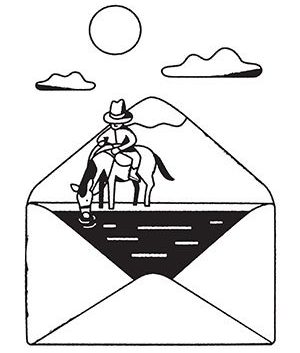- California wildfire burns out of control but firefighters could get a break when winds diminish
- 'Flooding is our number one natural disaster' | Breaking down the voter-approved Harris County Flood Control District tax rate hike
- Powerful Category 3 Hurricane Rafael knocks out power in Cuba as it heads to the island
- NC Forest Service warns of increased wildfire risk in western part of state after Helene
- First responders searched for hours after being told two people were swept away in flash flood
Hurricane Harvey Price Gouging Cases are Still Being Settled

Employee Bryan Herrera holds a makeshift sign that reads, “Out of Gas,” as he stands outside the Shell filling station in Texas where he works, Thursday, Aug. 31, 2017.
As Hurricane Harvey raged over the Gulf Coast last fall, some retailers saw an opportunity to increase their profit margins. After the storm settled, the Texas Attorney General’s Office got involved and began investigating more than 120 gas stations for suspected price gouging.
The office received more than 5,000 complaints from consumers about gas stations that raised prices on unleaded gas to at least $3.99 per gallon for gas (the national average, at the time of the storm, was $2.35 a gallon). Over the past several months, they’ve begun reaching settlements with the state, resulting in refunds to customers who were overcharged for fuel during the emergency. The latest in these ongoing negotiations came this week, when a North Texas chain of stations owned and operated by Bains Brothers, LLC, agreed to pay out $26,000 to customers. According to the Dallas Observer, Bains’s stations charged as much as $6.99 a gallon, despite signs that advertised much lower prices. In July, the first batch of settlements began with 48 businesses agreeing to pay $166,592 in combined restitution to customers. (Bains Brothers represents the 53rd such settlement.) Of the initial 48 stores, 42 of them were in the Dallas–Fort Worth area. The rest were in Central Texas.
“Price gouging is something that no Texan should be confronted with when there’s a declared disaster such as Hurricane Harvey,” Texas Attorney General Ken Paxton said in a statement. “This latest settlement reimburses those who were taken advantage of by businesses that charged excessive amounts for fuel, and it serves as warning that Texas’ price-gouging statute will always be vigorously enforced.”
The fact that the AG’s office went after businesses outside of the areas most directly affected by Harvey has drawn some criticism though. The Dallas Morning News published a column in August arguing that the spikes in prices were unlikely to have affected people who were fleeing the storm. Rather, the authors posed, the people who paid the higher prices may well have been those who were filling up garbage cans and massive barrels in anticipation of potential shortages. “Small businesses lack sophisticated supply chains and disaster-response specialists, so it almost always will cost them more to boost supplies after a storm,” the column argued. “Independent gasoline stations usually operate on slim margins. The law forces small businesses to choose between losing money, raising prices or running out of gasoline to sell. While consumers do not like higher prices after disasters, consumers are better off with gasoline available at a high price rather than no gasoline for sale at all.”
Gas stations in Austin, Dallas, and San Antonio faced shortages (or were completely sold out of fuel), and gas hoarding was likely a contributing factor. But it’s a curious jump to suggest that unfettered price hikes—Texas law currently allows for a modest 25 percent spike during a state of emergency—are the only solution. Or, for that matter, that the only people who were forced to pay higher prices were locals from unaffected areas. People fleeing Houston and other affected areas along the Gulf Coast were often heading to Austin, Dallas, or other areas that were safer and dryer during the storm, and many of the incidents of price gouging occurred days after the storm made landfall on August 25.
Harvey was an unusual situation, natural disasters on its scale are likely to be increasingly commonplace. It’d be unrealistic to suggest that every local gas station prepare an H-E-B-like response to storms like Harvey, but having a plan in place that balances the needs of consumers with the station’s responsibility (under the law) not to gouge customers should be on the minds of every gas station owner.
At the very least, the state has shown a clear willingness to go after those whose price hikes break the law during emergencies, which means that coming up with some sort of plan to deal with increased demand in those times isn’t just a good idea—it may be the only way to navigate those situations without paying out hefty fines after the fact.